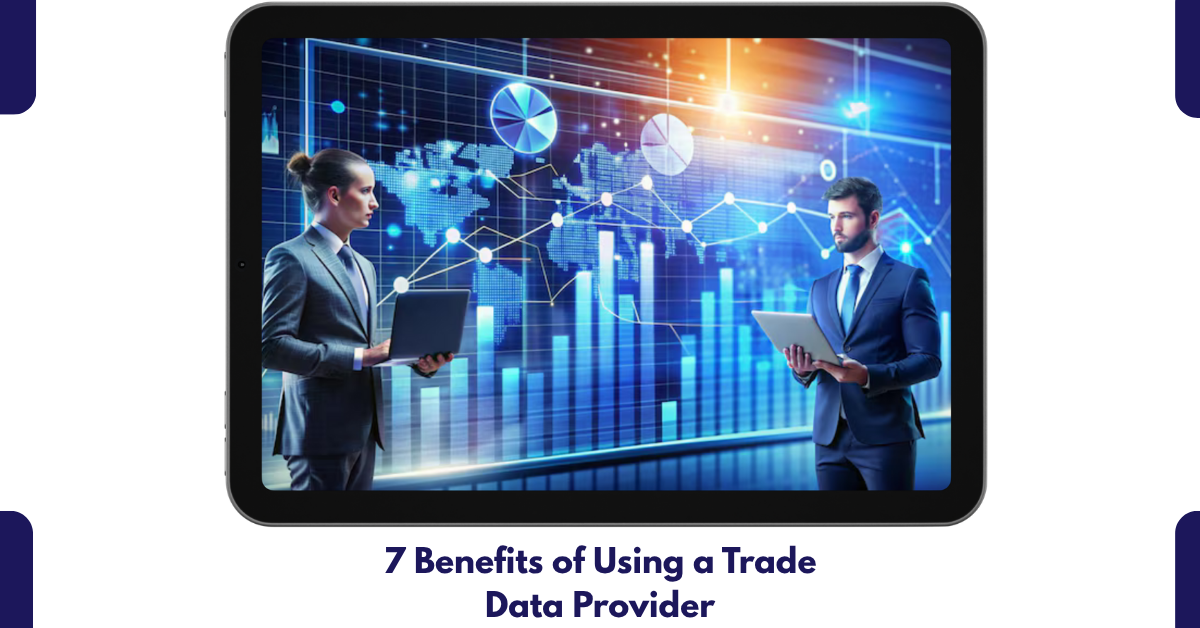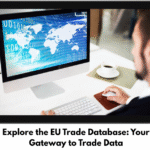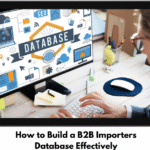Unlocking the Power of Data in Global Trade
In today’s world of business, information is as good as currency. Each shipment, transaction and every other form of business generates vast amounts of electronic data – the companies that are able to understand and make sense of such data are in a class of their own.
Businesses that continue to rely on cost ineffective methods of doing market research are going to be outperformed and outpaced by companies that provide real time intelligent data. The answer is in collaborating with a trade data provider. Any global trade data provider will be able to help a business bypass trade speculation through careful data driven analytics.
It is more than data with a competitive edge. It is exactly foresight that is paramount in business. For instance, what if you have the ability to gain access to information on what industries are gaining the most growth, what regions are fresh in trade, and what suppliers or buyers are the most dependable before your competitors understand any of that?
That is what the trade data provider online trade data is able to provide. The rest of the text in the following section illustrates the seven trade data provider online trade data benefits to help any business – small or multinational – understand the importance of the issue.
Access to Reliable and Comprehensive Data
Every business strategy sshould align with reality therefore hinges on concrete and accurate information. Cross Customs Services Trade Data Provider India boasts granular information on ship manifests and cargo along with the requisite customs paperwork. In business settings with this high level of detail, decision making is not guesswork but is based on raw empirical data spanning millions of business transactions and numerous cross sectional areas and regions.
In gaining access to a trade data provider free trial, almost all businesses comes to appreciate the trade intelligence. These sub-commodity insights offer competitive advantages like trade revenue forecasting, strategic investment forecasting, and risk management. These are not marginal conveniences – they are essential building blocks for survival and competitive advantage.
Market Expansion Opportunities
Perhaps the greatest burden of all for companies is the search for additional cross border markets and the level of demand potential. In this case, amid the obstacles a global trade data provider will analyze and synthesize to provide strategic growth recommendations. These insights provide several decision points – the countries sourcing the product, the inflow of demand from imports, and the competitive rivalry – facilitating strategic entry to blue ocean markets.
This type of insight allows expansion into new markets to be based on more than just forecasts. For any company looking to expand into Southeast Asia, the Middle East or even into Latin America, clarity comes from the data driven approaches to reliable online trade data, rather than remaining clouded in ambiguity.
Competitor Analysis and Benchmarking
This kind of intelligence works to an organization’s benefit. Working with a top 10 import export data provider provides a business the opportunity to understand how their competitors export, import, trade and analyze their supply chains along with trade partnerships in this landscape. Trade is about more than just the competition. This is a question of how you can become more competitive rather than how to be more competitive.
Organizations can gain competitive insights in order to analyze their industry and design their organizational architecture to eradicate the new ‘blue ocean’ gaps in their trade. A trade data provider app streamlines this process by providing instant competitor activity updates and data that can be accessed via mobile, giving all of this intelligence to the trade executives in charge.
Strengthening Supply Chain Efficiency
There can be many disruptions to the supply chain which include geopolitical tensions, regulatory changes, or other logistical issues. Having access to provider India allows businesses to predict future challenges by closely studying shipping trends. Companies can diversify, negotiate, and eliminate risk before they even start to escalate.
For instance, businesses can evaluate their level of supply by looking at data and if it is excessive and mostly dependent on one region, steps can be taken in other countries to balance the supply. This delay is gap with assists with exim trade data as it will lessen the wasted money and resources and sets the structure for easier future transactions. Customer satisfaction also increases with the reduction in supply chain management expenses.
Identifying New Buyers and Suppliers
International trade still heavily relies on the relationships one is able to build. Trade data provider used in the free access point allows companies to have access to confirmed buyers and suppliers. Instead of folders and connecting with other businesses, companies can analyze the trade activities of other companies.
This advantage is not limited to just discovery. It enables firms to connect with market players with proven import and export transaction histories. Through import export data analysis, firms reduce the risks that come with dealing with dubious partners, while facilitating faster access to lucrative trade networks.
Enhancing Strategic Decision-Making
It is the responsibility of executives to reach conclusions that dictate the organization’s future positions. A trade data provider services the leadership by simplifying and clarifying complexities, allowing them to make intelligent decisions in real-time. Answers to “What products need to be pushed?” or “What routes are efficient?” are no longer based on conjecture. They are based on actionable intelligence.
With tools of trade data provider apps, decision-makers are able to gain real-time access to numerous data points and reports, monitor trade activities, and make real-time responsive shifts to changes in demand. This responsiveness is key competitive advantage that is favorable in the real-time context of the global market.
Compliance and Risk Management
It is no secret that business trade is subject to an intricate system of laws interconnected with tariffs as well as compliance requirements. Failure to court compliance is likely to incur costly penalities as well as an expensive delay in shipment and incurred damage to reputation. A global trade data provider helps businesses keep in touch with changing mandates. Through exim trade data, companies can remain compliant with customs laws and international treaties, as well as published tariffs and agreements.
Risk compliance is one of the aspects in the field of business risk that is primary focus, alongside the geo-political condition of the area, the ever-fluctuating currencies, and the bottomless potential for demand. A top 10 import export data provider tackles all of these aspects together, enabling businesses to devise strong business plans that can sustain external shocks.
Conclusion: Turning Information into a Strategic Asset
The days where trade was conducted solely on hunches are long gone and for good reason. In this global economy, success is achieved from making trade a core business than an accessory. Collaborating with a global trade data provider helps businesses derive immense value, whether it is for entering undeveloped markets or keeping management reporting compliant, optimizing supply chains, or finding reliable business partners.
Users of a trade data provider India or a trade data provider app tend to perform better than those who stick with standard methodologies. Businesses with import export data provider services and advanced exim trade data are better positioned to predict and act on shifts in the market.
The seven benefits outlined are real, practical, and can be measured. Transformative, even. Businesses that spend on the right kind of intelligence today will win the battle for profit and sustained resilience in the unpredictable domain of global trade.
FAQs on Trade Data Providers
Q1. What is a trade data provider?
A company that offers import-export statistics and customs shipment data to businesses.
Q2. Why do businesses need trade data providers?
To discover new markets, track competitors, and connect with global buyers and suppliers.
Q3. What information do trade data providers offer?
HS codes, product details, shipment values, origin/destination countries, importer/exporter details, and trade volumes.
Q4. Who uses trade data providers?
Exporters, importers, manufacturers, logistics companies, researchers, and consultants.
Q5. Which are some popular trade data providers?
Zauba, Panjiva, ImportGenius, Trademap, and Datamyne are widely used providers.



